More Than Just a Game: The Real-World Applications of the Super Mario Effect
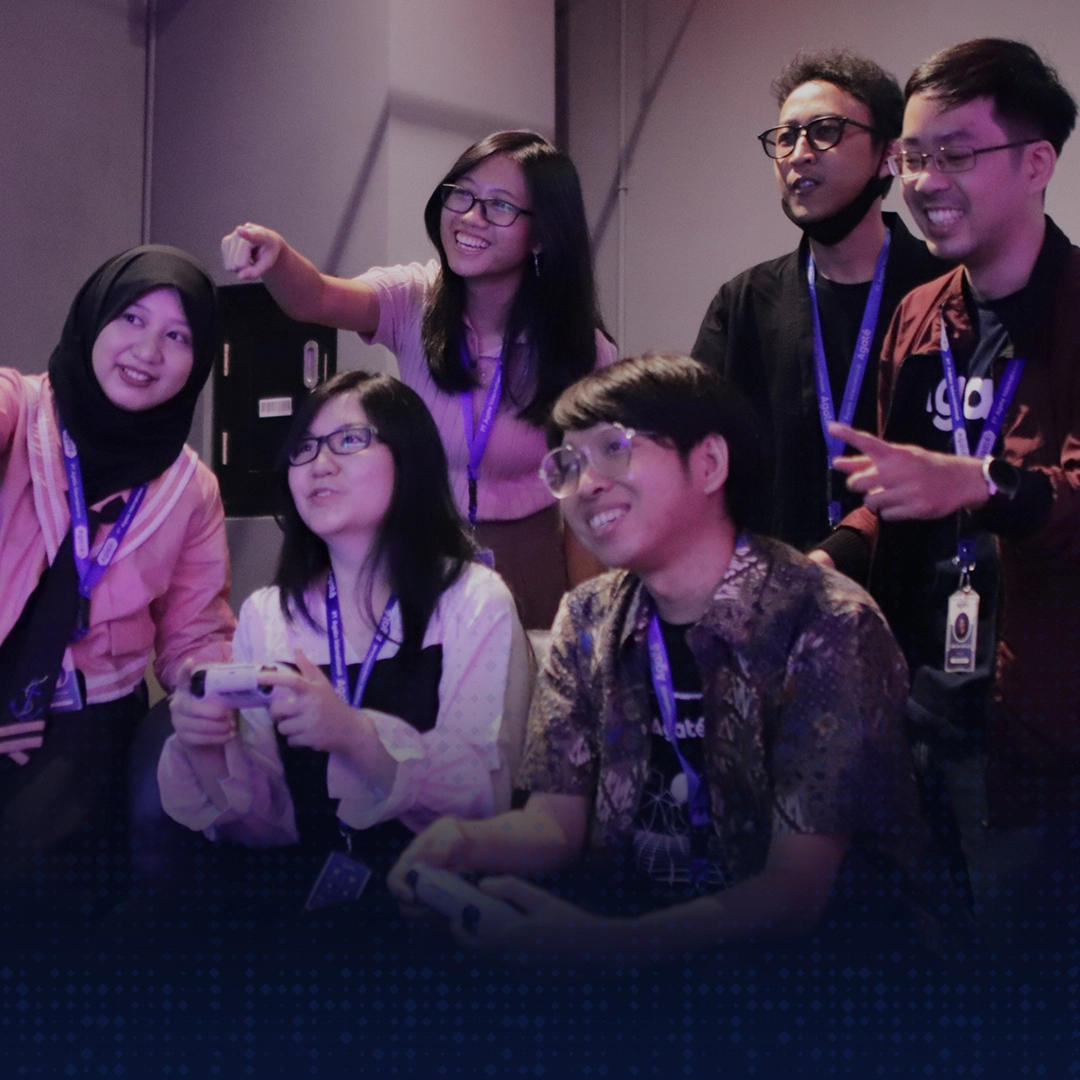
Who knew that games could help us learn? It turns out that every game involves some struggle, which is just what we need for optimal learning! Learning something new can be challenging, we need to go through that trial-and-error phase until we finally reach that amazing “aha” moment. Ever wondered why we tend to give up when faced with challenges instead of seeing them as opportunities for growth? Mark Rober’s TEDxPenn talk, “The Super Mario Effect,” explains that our approach to learning is key. In Super Mario, players are motivated to learn the game mechanics and hone their skills to save the princess rather than fear failure. The Super Mario Effect is explained as “focusing on the Princess and not the pits, to stick with a task and learn more.” There are three takeaways to apply this to feel less stressed and learn more. Reframe Your Mindset The Super Mario Effect is about turning challenges into engaging opportunities for growth. Rather than dwelling on failure, players focus on mastering each level to progress to the next. It’s a game that reframes loss as a learning experience and inspires us to keep going. Gamification can be a game-changer in our lives, according to Rober! By treating challenges as games, we can view the learning process as an enjoyable activity that we want to keep doing. In other words, gamification can help us reframe challenges and make them more engaging and motivating. Keep Your Eyes on the Prize Playing a game always ends with one thing: the prize! Even when the going gets tough, the thrill of mastering the game is just too enjoyable to pass up. Unlike real life, mistakes don’t have to be devastating in a “give it your all to win” environment. Instead, they’re like fun-sized opportunities to learn and improve for your next try. According to Rober, The Super Mario Effect is more than just having a positive attitude. Turning challenges into games and emphasizing the prize makes the process feel lighter and more empowering; it makes you think, “What worked? What didn’t? What can I learn from it? I’ll try again.” Rather than enduring, it becomes about learning and trying again. Focusing on the Prize can trick your brain into learning more. Shift Your Focus from Failure By freeing us from the fear of failure, the Super Mario Effect has revolutionized the way we approach challenges. Its core idea is to learn from mistakes without fixating on them, which means that failing to beat level one isn’t a reason to quit, but rather a chance to gain insight from errors and persist toward our goal. Gamification The Super Mario Effect is a phenomenon that describes how individuals become more motivated and engaged in tasks that are challenging and rewarding. By utilizing gamification, this concept can extend beyond gaming to various aspects of life, including education, work, and even personal development. Gamification is the incorporation of game mechanics and principles into non-game contexts. It involves applying gaming characteristics to address problems and achieve goals through various activities and procedures. It isn’t a one-size-fits-all solution, and it’s all about figuring out the objective and picking the right game design to achieve it! The ultimate goal of gamification is to boost interaction, collaboration, sharing, and engagement among different groups, including partners, employees, and customers. Gamification also works wonders in marketing. Enhancing engagement and experience increases user retention and acquisition through social sharing. It also promotes brand awareness, loyalty, and provides a sense of accomplishment to users. Lastly, it simplifies data gathering, providing valuable insights to businesses. Gamification can help businesses improve customer engagement and achieve marketing goals by incorporating game elements into their products or services. This leads to more enjoyable and rewarding customer experiences and drives business success. Gamification by AgateGamification isn’t just about making things more productive or efficient. It can also be fun! Incorporating game elements into non-game contexts can make mundane tasks more engaging and exciting. The examples are Agate’s gamification features. They’re helpful in onboarding users and collecting data and provide a fun and interactive experience. Let’s look closer and see how Agate has taken gamification to the next level! GoPay Indonesia designed the Suwit game to encourage users to try their P2P transfer feature, resulting in a 40% increase in daily use. Play Video Populix created a family feud-style game called Pop Quest, which motivated users to answer questions quickly and honestly, leading to better data collection. Play Video Moreover, an elementary school gamified assessment tool was developed to help students recognize their potential and receive personalized recommendations based on their needs, resulting in more accurate behavioral assessments than traditional tests. Interested to be a part of our crews? Check the vacancy list below! VACANCY LIST Position Department Contract Type [Mythic Protocol] Creature 3D Artist Art Contract Type : Project Based Details VFX Artist Art Contract Type : Regular Crew Details [Project-Based] Quality Assurance (QA) Quality Contract Type : Project Based Details UI Artist Art Contract Type : Regular Crew Details Load More
When Art Meets Technology: The World of VFX and Technical Artists
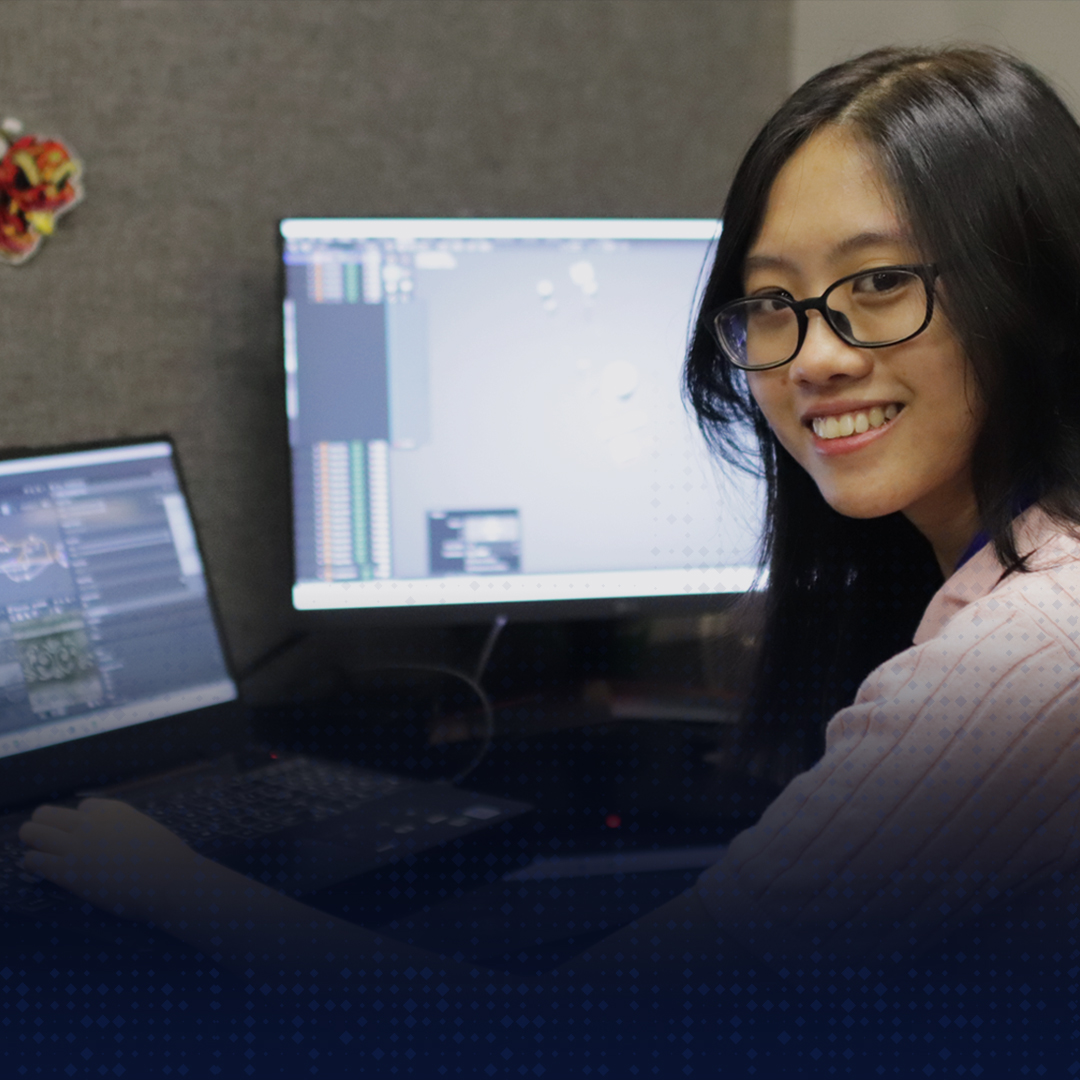
At Agate, there are many specialists in the Art Department, including 2D, 3D Character, 3D Environment, Concept, Technical artists, UI, VFX Artists, and Game Animator. Each role requires a unique blend of technical know-how and creativity to produce top-notch artwork. However, two roles in the specialist focus more on technical expertise: VFX and Technical Artist. Let’s learn more about these two roles! VFX Artist At Agate, VFX artists play a crucial role in enhancing the visual effects of games. VFX artists specialize in creating mods for games, which add an extra layer of visual appeal to the game. In addition to this, they are responsible for describing the visuals of game elements and characters’ skills. These elements range from pyro particles, fluids, lightning, explosions, and cracks. They’re responsible for creating VFX concept art by making rough sketches and conducting the RnD for its implementation in the game. This process includes setting up the VFX in the game engine, such as Unity or Unreal, which involves creating textures, shaders, and materials. The ultimate goal of VFX artists in game development is to create visuals that align with the Art Direction and Game Design. By following the directions, they can present visuals that players can easily understand and enjoy, such as character skills, environment atmosphere, visual animation, and UI icon effects. Here are the essential skills required to become a VFX artist in the game industry: Strong knowledge of Realtime VFX in games Proficiency in VFX tools used in the industry pipeline, such as Unity or Unreal game engines Expertise in 2D and 3D VFX VFX artists collaborate with other departments at Agate to bring the game’s visuals to life. They work with Art Direction and Game Design to decide on the best designs, create 2D and 3D VFX, and collaborate with Technical Artists for seamless implementation. Challenges Various VFX Art StylesThe Game Design and Art Direction teams often face Visual Art challenges, such as producing artwork in a particular style ranging from stylized to realistic genres. To tackle these challenges, artists typically utilize software tools that align with the desired art style, making their work more efficient. VFX FormIn certain situations, there may be a need for VFX to be distinct and exclusive from others. For instance, the VFX could be shaped like Hexagons, portals, or other uncommon shapes. To overcome these obstacles, artists usually craft an exclusive 3D shape by utilizing specialized software and designing a personalized shader to realize the required VFX shape. VFX Optimization in GamesWhen creating games, they are often intended for a variety of platforms. However, the challenge lies in ensuring that the VFX remains playable while maintaining its quality. This can be achieved by modifying the Particle Set Up in VFX, such as limiting the particles’ number and reducing the mesh’s poly count. Additionally, it’s essential to consider using shaders on materials to prevent excessive particle usage. Texture Atlasing can also reduce the load on the VFX particle casting process. Play Video Set Up Area of Effect from Magic Shield VFX Technical Artist In the process of game development, technical artists play a multifaceted role that encompasses various stages. Initially, they establish standards and streamlined workflows during the planning stage. They may then assist artists by creating customized tools in the asset creation and polishing stage. Additionally, technical artists may enhance graphics by utilizing shaders, lighting, and post-processing in the game engine. Finally, they must optimize the game to ensure optimal performance and a smooth playing experience. The primary objective of technical artists is to design efficient workflows that enable artists to create high-quality assets on time. They also strive to optimize game performance to provide a seamless and enjoyable gameplay experience. Furthermore, they work towards enhancing the game’s graphical quality to make it visually appealing and engaging. Here are the skills that are required to be Technical Artist in the game industry: In-depth knowledge of game engine Knowledge about 2D workflow and 3D art and tools that artist uses Artistic sense Technical artists collaborate with other roles, such as artists, tech, and designers. This collaboration is essential to understand the specific requirements, objectives, and functioning of each role and establish effective communication channels. Challenges Technical artists face the challenge of keeping pace with constantly evolving technology and ever-increasing standards. They must remain updated and adapt to the latest technological advancements to meet and exceed the growing expectations for game development. They can also address the limitations of diverse devices and platforms by implementing tiers of graphic settings that can be adjusted according to the hardware capabilities of the user. These tiers may include material and shadow quality and utilizing assets with Level of Detail (LOD) and fallback options. Previous image Next image Shader Graph Tips Although there are numerous challenges to face and various necessary skills to acquire as a VFX and Technical artist, here are some tips to help you to be better! A simple tip to become a good VFX Artist is first to understand the basic concepts of Realtime VFX and how they work in game development. Learning the workflow and pipeline tools used in the game industry, such as the software and tools used in game engines, is also important. To learn more, beginners can find courses and tutorials on the Realtime VFX forum. To become a VFX Artist, one must be willing to experiment and try new things when setting up VFX. Sharing previews of VFX creations on platforms like ArtStation, LinkedIn, or Behance can serve as an initial portfolio. To become a better technical artist, having an open mind and a willingness to learn is important. The technology and tools used in game development are constantly evolving, so staying updated and adapting to new changes is important. Developing a practical mindset can also be helpful, as it allows you to find the most effective ways to solve problems. Interested in being a part of our crews? Check out the vacancy list below! VACANCY ON ART DEPARTMENT Position
Bringing Games to Life: The Process of Game Creation
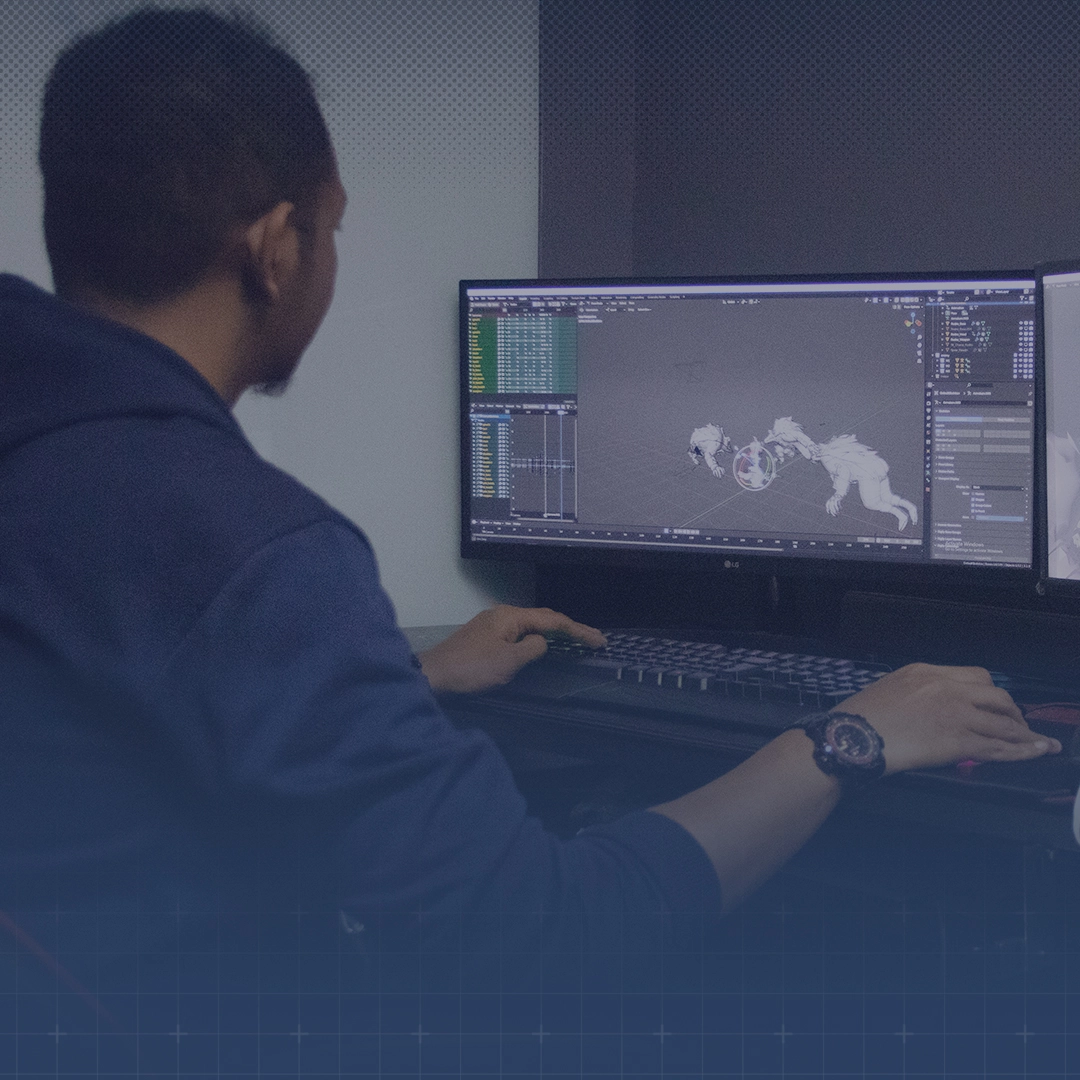
Ever wonder how your favorite games are made? Or are you eager to create your own games? Well, look no further because we have got you covered! We’ll provide a thorough process of creating a game, from scratch to life! Let’s check it out! Note: The process may vary depending on the company and game type. Creation This is the starting point of game development. This phase aims to get many potential concepts by exploring the market opportunities, game premises, game system, and theme to decide whether the concept is feasible. In this phase, the Product Manager (PM) leads while working alongside the team. IdeationThe PM’s team comprises product marketers, market researchers, and designers. They’ll conduct a study to dive into the current market landscape and identify existing problems and opportunities. This means exploring various aspects such as game premises, player demands, industry trends, and themes to comprehensively understand the market. PitchA pitch contains a selection of ideas that have been developed in the previous stage of the project. The aim is to select the best ideas and concepts to be presented to directors and senior leadership. Feasibility StudyAfter the idea has been approved by Senior Leadership and Directors, the PM and the team can move on to the next step to estimate the game’s market potential and budget. Pre-production During this phase, the PM is still in charge of validating the game design from the initial concepts of user research and trials. The main focus is to prevent major changes in the next phase, so rapid prototyping and design iterations are emphasized. Game User Research (GUR)As part of the validation process, research on the target users ensures our game concept is on the right track. In this process, scientific principles are applied to understand the player and their psychology more. PrototypingA prototype is a basic version of a game that includes its core features. The main goal of developing a prototype is to test the core gameplay mechanics and interactions through playtesting. By starting with a simple prototype, developers can gradually refine and hone their game’s focus as they continue with the prototyping and testing stage. PlaytestingPlaytesting is a step in game development to validate assumptions, gather feedback, and identify flaws. Regular iteration and playtesting can identify design flaws, usability issues, or potential roadblocks. This enables developers to make necessary adjustments early on so the game product is well-received by its intended audience. It helps to create a more polished and successful gaming experience for players. Pre-Alpha ConceptingAfter collecting data from playtesting and previous stages of game development, the next step is to create an MVP (Minimum Viable Product/Pre-Alpha) concept. This concept serves as the initial documentation, including the game design, art, and technical design documents. The MVP concept can be sold and used as a reference during production, providing a clear roadmap for developers to follow. Previous Next MVP (Minimum Viable Product) – Valthirian Arc Hero School Story 2 Production During the production stage, the game producer takes on more responsibilities. This stage has several milestones: Pre-Alpha (MVP), Alpha, and Beta. Additionally, some game developers opt for a ‘Stealth Launch,’ releasing the game under a different name and publisher to get early metrics on the players’ response and determine if it’s suitable for release. Iterative production patterns are critical during this stage and should be emphasized throughout the development phase. Pre-AlphaThe next stage of game development, commonly known as First Playable, involves creating a vertical slice build that incorporates the prototype from the previous stage and follows the specifications outlined in the technical, art design, and game design documents. The goal of this build is to create a playable version of the game that includes all of the key features. AlphaIn the Alpha stage, the game has all major features and is playable, but only about half the content is complete. During this stage, the game’s core gameplay mechanics are set, but can still be revised based on feedback from testing. The Alpha build can be later used for a stealth launch. BetaBeta is the stage when all the important components are done, and the team focuses on fixing any remaining bugs. The main goal is to ensure the game is free of any bugs that could cause problems when it’s released. At the same time, the team is getting ready for the game’s launch by creating marketing plans and arrangements for live operations. Previous Next Vertical Slide – Valthirian Arc Hero School Story 2 Product Launch This is the phase where the game is officially released to the market, and it enters the introduction stage of its product life cycle. The development team puts extra effort to ensure the game is polished and ready for a wider audience, so they’re very strict quality assurance procedures to minimize any bugs. At the same time, the PM teams up with the marketing team to promote the game. https://youtu.be/aWb32Gw5cUs Previous Next Launch Trailer – Valthirian Arc: Hero School Story Live Ops This phase aims to maintain the game’s player community by keeping them engaged. An example is by offering regular updates and organizing events, which are decided based on user feedback and analytics. This phase is linked to the growth to maturity phase of the product life cycle, and it’s managed by the PM and the live ops team. Previous Next Live Ops – Memories Previous Next Early Access Update – Valthirian Arc Hero School Story 2 Sunset At some point during game development, the product manager might need to decide if they need to shut down all operations related to the game based on factors like revenue and user numbers. After reading about the step-by-step process of game creation, are you ready to join our adventure? Check out the vacancy list below! VACANCY LIST Position Department Contract Type Game Tester Intern Quality Contract Type : Internship Details Product Management Intern Product Manager Contract Type : Internship Details Business Development Marketing Sales & Operation Contract Type : Regular Crew
Unlocking Your Potential: A Guide to Empowering Leadership
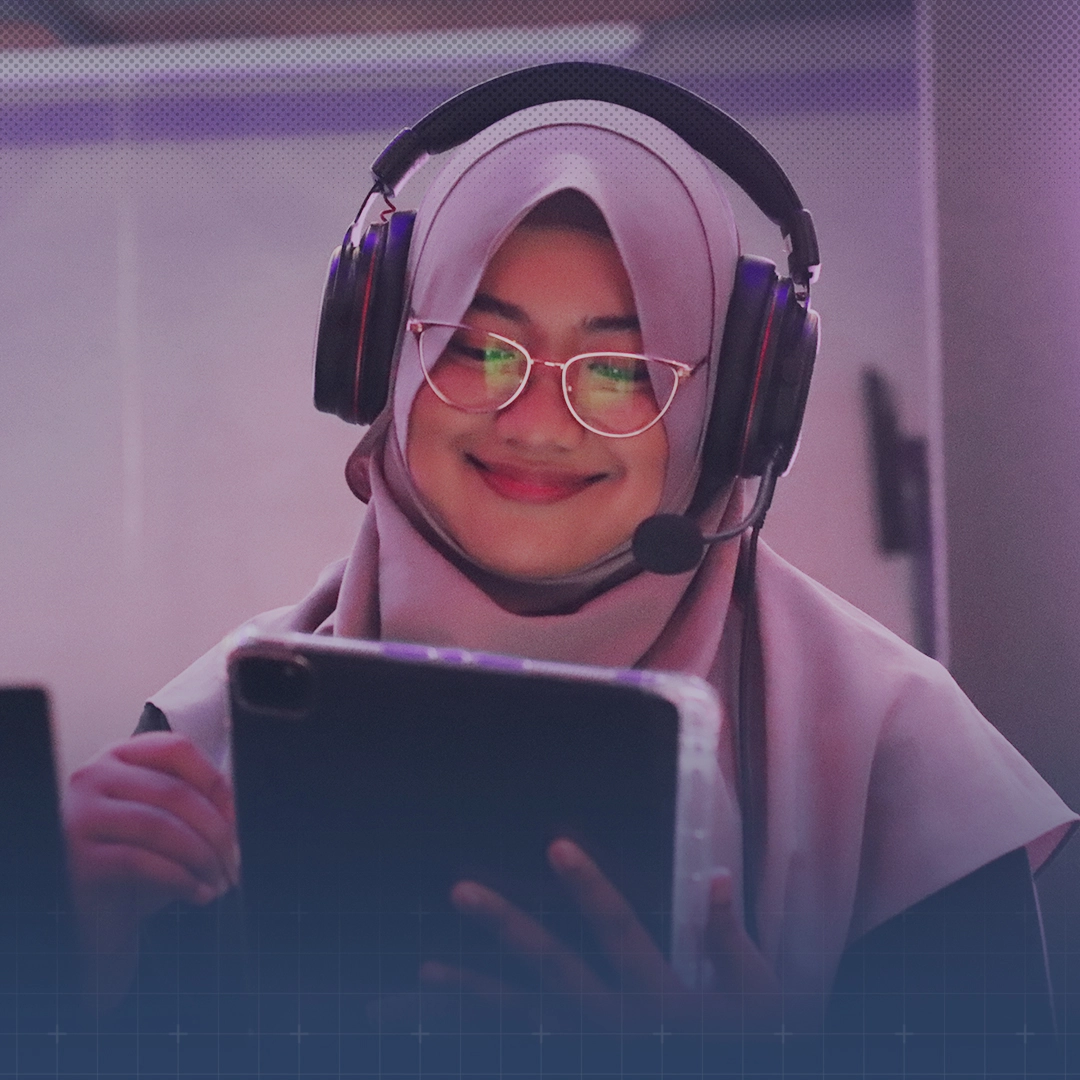
Want to know how to be an effective leader? Becoming an effective leader can be a daunting task, and trying to master all aspects of leadership alone can be challenging. Empowering leadership requires both soft skills and technical proficiency, with a focus on comprehending the team’s work and effective communication. But worry not, here are some tips for you to be empowering leaders! Create a Safe and Welcoming Space As a leader, creating a space for your team to take risks and try out new ideas without fear of being blamed is important. Rather than pointing fingers, the focus should be learning from mistakes and exploring possible solutions. Clear communication of expectations is also crucial. Leaders should be attentive to feedback from their teams, making it easy for them to discuss complex issues and seek support when needed. Empower Your Team Empowering your team boosts productivity and engagement. Encourage them to take on challenges, organize work, and improve processes. It’s important to give clear goals and context to help them understand what to achieve and why. Trust and give them a sense of ownership to enhance their commitment to their work. Learn Efficiently Stay open to new ideas and be flexible enough to change your opinion based on new information. Discussing new developments with your team before making critical decisions that could impact them is essential. This helps build trust, promotes collaboration, and ensures everyone is on the same page. Nurture Growth Team growth and development can be facilitated in several ways, such as nurturing each crew member’s skill sets, strengths, and interests. Encourage personal and professional growth by allowing your team members to explore their interests and supporting them in learning new skills that could benefit them in their current or future roles. Foster Connection & Belongings Show compassion and understanding towards your team members when communicating with them. Acknowledge their emotions and remember they’re human beings, not just resources for completing tasks. Celebrate successes and failures as a team and openly give credit where it’s due. Strive to balance personal and professional connections, as this can help foster a more supportive and collaborative work environment. Be Competent & Set Examples Take the time to think carefully about the issue at hand and the different options available. Use your knowledge and judgment to make the best decision possible. Analyze the problem, identify its root cause, and hone your problem-solving skills. Additionally, be a positive example to others, lead by example, and be open and honest. As an empowering leader, it is crucial to have a deep understanding of the technical aspects of your team’s work. While soft skills such as communication, teamwork, and problem-solving are important for effective leadership, technical skills are equally necessary to manage your team’s tasks effectively. A key element of technical competence is the ability to proficiently document tasks and data. Check out the tips below for more information about documentation! Effective Documentation Tips When creating documentation, it’s important to consider the target audience and the objective of the documentation. If a broad audience will read the documentation, it’s important to use language that is easy to understand for people with technical and non-technical backgrounds. The documentation should be comprehensive enough to meet the needs of more experienced individuals and easily digestible for those with less experience. Moreover, if you share the document with others, you can use online platforms such as Notion, Miro, or Figma to work together more effectively. At Agate, we mostly use Notion for documentation because it’s easy to use. Notion provides a user-friendly interface and user experience, making it beginner-friendly. Its linked databases feature lets us synchronize content across multiple pages, making it easier to filter team task views and create task dashboards. Additionally, Notion’s customizable options allow us to tailor their workspace to meet their needs, resulting in a more organized and efficient workflow. Interested to be a part of our crews? Check out the vacancy list below! VACANCY LIST Position Department Contract Type Game Tester Intern Quality Contract Type : Internship Details Product Management Intern Product Manager Contract Type : Internship Details Business Development Marketing Sales & Operation Contract Type : Regular Crew Details Outsourcing Staff Intern Studio Contract Type : Internship Details Load More
Leading the Way: The Role of Leadership in Agate
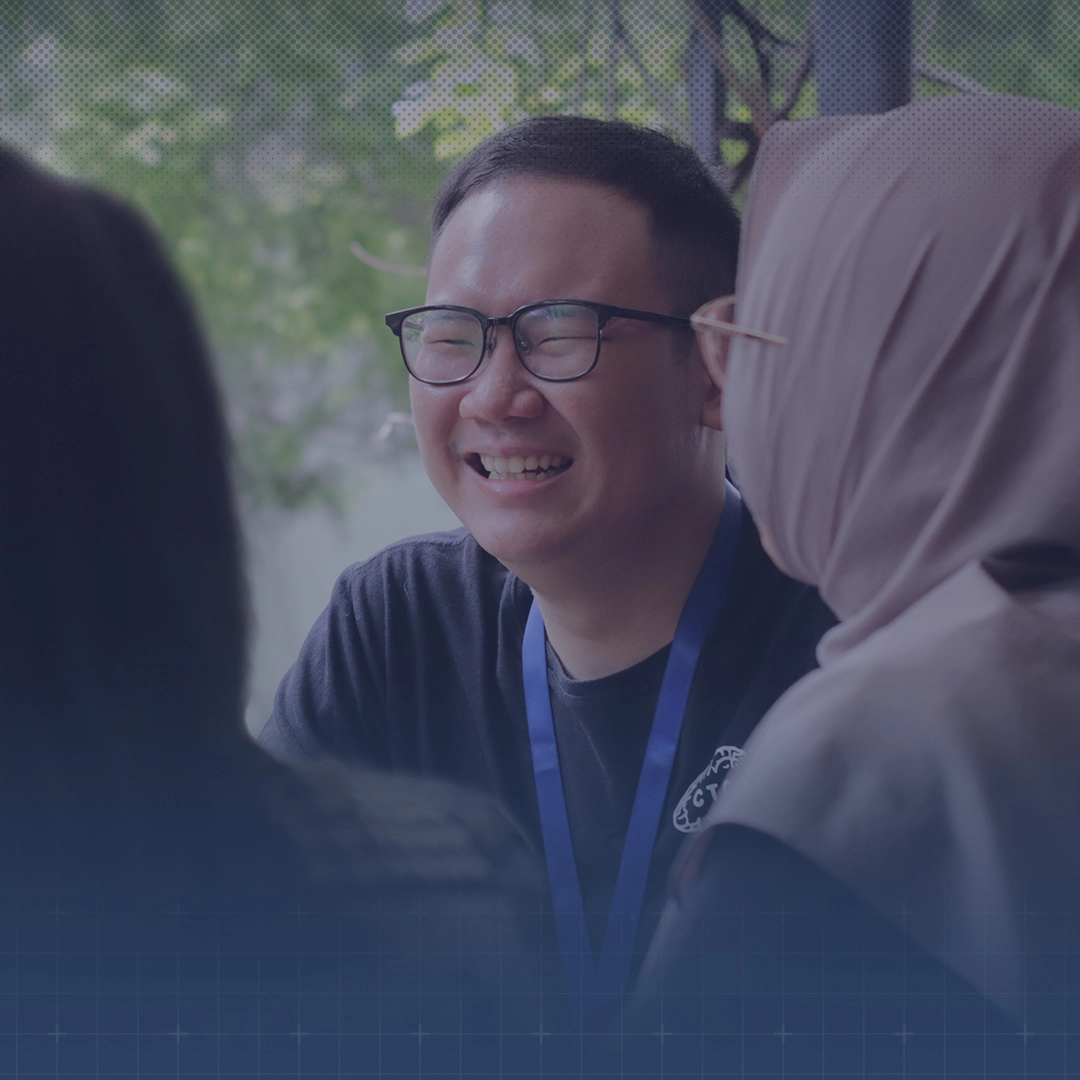
Leadership is one of the most critical factors determining a company’s success. Effective leadership will inspire and motivate crews, encourage collaboration, drive innovation, and navigate challenges. A good leader sets the tone for the entire team and creates a culture that values teamwork, accountability, and continuous improvement. In this fast-paced and ever-changing business environment, leadership isn’t just about managing people and empowering them to achieve their full potential. In this article, we’ll explore the importance of leadership in Agate. But before we begin, let’s take a look at the number of leaders in Agate! Leaders Responsibility Leaders play a crucial role in supporting their team to achieve common objectives that align with the overall strategy of Agate. Activities performed by leaders vary depending on the grade, ranging from ensuring timelines and quality of work by expectations, helping team members solve problems and obstacles in daily work, coordinating with other stakeholders, managing team allocation and workload, creating policies with a specific scope, creating and maintaining OKRs, strategic planning, evaluation, and others. Senior leadership refers to the leaders who hold the highest-level positions and are responsible for guiding the company’s overall direction. They’re responsible for supervising multiple department heads, a broader scope than typical department heads. Their duties include creating long-term plans and evaluations, covering a 3-5 year period, and evaluating the impact on the company. Leadership Program LeadershipReview Every six months, all leads will undergo a review process that involves evaluation by their superiors, colleagues, and subordinates. LeadershipDevelopment Program Leadership Sharing SessionThe Head of Departments or other Senior Leadership members conduct the session, which covers various general competencies such as time management, strategic thinking, and assertive communication. The session is available to all leaders interested in attending, including C-level executives, VPs, Senior Specialists, Producers, Product Managers, and Managers. Leadership Intensive CoachingThis is an ongoing program that collaborates with the Agate Academy team to identify the strengths and areas of improvement for potential and existing leaders. They will be paired with other leaders who can act as coaches to help them develop the necessary skills. For example, Lead A, who excels in numbers but needs to enhance their public speaking abilities, will be matched with Lead B, who has exceptional public speaking skills but needs to improve in numbers. Through this coaching process, participants can schedule sessions to coach each other and complement each other’s skills. Management Trainee Sharing SessionThe session is conducted by Senior Leaders, MTs who have graduated, or other MTs. The session’s content is tailored to the current tasks and challenges faced by MTs. For instance, before the bi-monthly meetings, MTs can share their experiences and discuss topics like OKRs, strategic planning, and evaluations. Additionally, the session covers general competencies that include communication, company knowledge, time management, problem-solving, and decision-making. There’s also an opportunity for MTs to participate in Q&A sessions and other activities that align with their interests. Learning& Development Budget At Agate, leaders can request various learning resources, including workshops, materials, and other tools to help them grow and develop their skills. By taking advantage of these resources, leaders can continue to level up and improve their abilities, leading to better outcomes for themselves and their teams. Trial Timefor Promotion To ensure a smooth transition and set leaders up for success, a trial period of 6-12 months is implemented before crews are promoted to lead or before a lead is promoted to a higher grade. During this period, leaders are exposed to new challenges they will face in their new roles. This trial period allows leaders to develop new skills and gain the necessary experience to confidently and effectively fulfill their new responsibilities. One-on-One Session At Agate, fostering a culture of growth and collaboration is highly valued. Work is not viewed as a transactional task but rather as an opportunity for personal and professional development. To support this culture, we held 1-on-1 meetings between crews and their leaders periodically to allow crew members to discuss their work, personal growth, interests, career projections, and other topics, even those unrelated to work. These meetings are crucial in allowing leaders to practice active listening and empathy and learn how to direct and nurture their team members. By prioritizing open and honest communication, Agate can create an environment where everyone can thrive both personally and professionally. Interested to be a part of our crews? Check out the vacancy list below! VACANCY LIST Position Department Contract Type Game Tester Intern Quality Contract Type : Internship Details Product Management Intern Product Manager Contract Type : Internship Details Business Development Marketing Sales & Operation Contract Type : Regular Crew Details Outsourcing Staff Intern Studio Contract Type : Internship Details Load More
A Peek Into Design Department
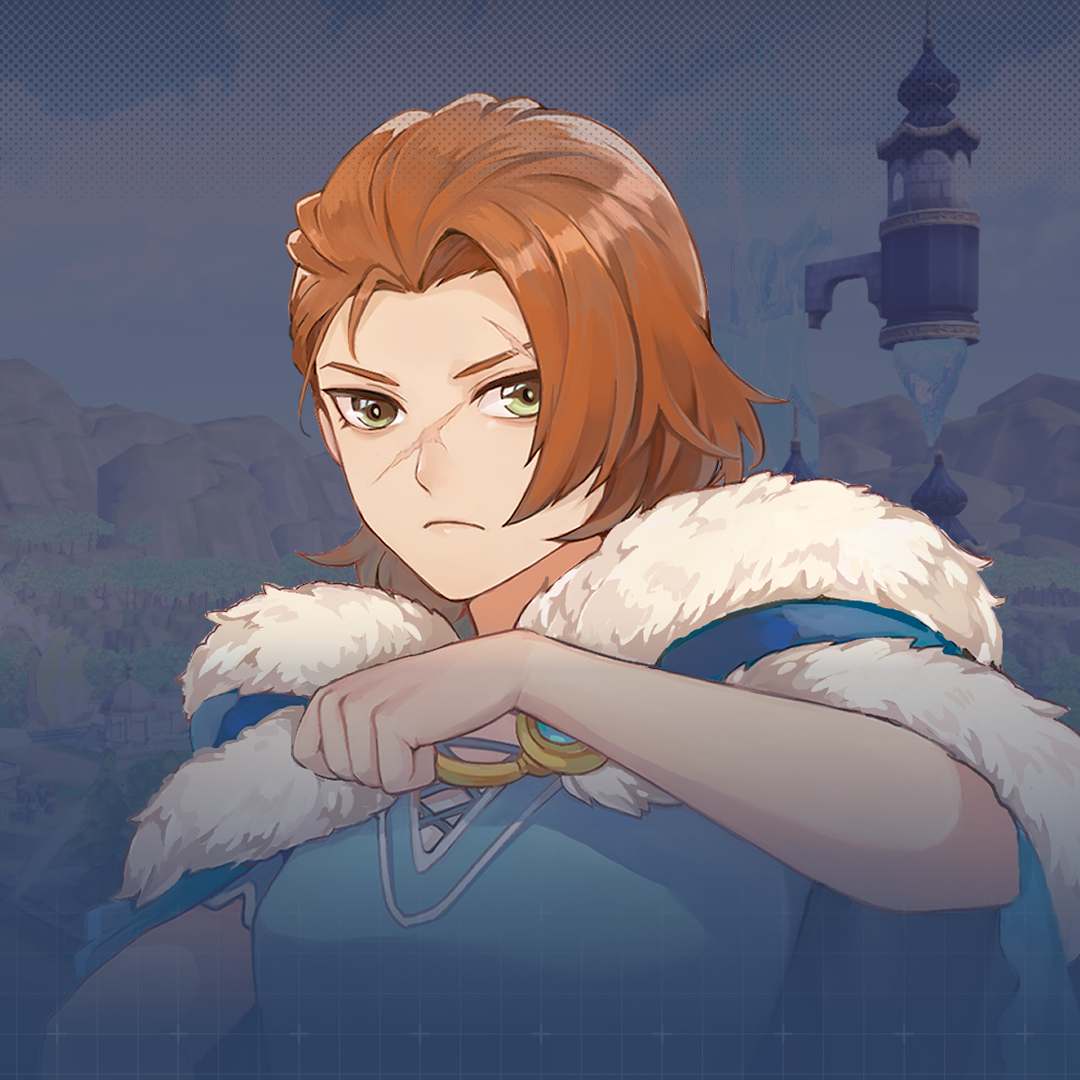
The call for the design department is to manage creative and design endeavor, possesses highly creative talent that absorbs visual trend and deploy them in fresh and exciting ways. Some sample roles we have in Agate’s design department are such: The team are required to create program in order to support the creative ecosystem inside our department and fostering balance of work to maintain the wellness in our culture. Another call is to recruit and allocate needed talents. Being a part of this department means you are going to make numerous of interesting and enjoyable games. It also means you need to set your target; one needs to maintain and improve quality. Your skills will be up for challenge in many levels starting from character development to game mechanism. If you think you can convince our recruiter and in-house member that you are capable to be in this department, check out some tips from our in-house member: Make sure you know which level you are applying for. Your working experiences will be a very much what we will be looking into. An honest and creative portfolio is very essential. Don’t overstate your previous works. Learn from your previous works and see in which case you are really compatible. Believe in your skill but stay humble. Willing to learn and accept criticism is another good point. Head down to our vacancy list below and see which role in the design department that fits your profile. Don’t hesitate to try your best luck here with us! VACANCY ON DESIGN DEPARTMENT Position Department Contract Type Senior Game Designer Design Contract Type : Regular Crew Details Load More
Tech Department 101

People behind the department There are three sub-divisions in the Department of Tech in Agate: Programmer (Game Programmer, System Programmer, Fullstack Programmer, etc.) As a Programmer, they need to develop the game by implementing concepts into actual playable games. Engineer (DevOps Engineer, Data Engineer, QA Engineer, etc.) To be an Engineer, one needs to make sure the developed game is stable and to ensure the technology pipeline is efficient and well improved. Research (Research Director, Lead Researcher, Tech Researcher, etc.) Their function is to explore new technology to find the best implementation for company standards. Overall, everyone in the Tech Department is required to provide the technological capability to orchestrate game components and infrastructure and also to bring the game design to life. Some targets they need to accomplish are ensuring the company possesses the best possible technology, improving tech crews to become world-class developers, and implementing the best tech advancement. Skills In order to develop and bring the game to life, crews in the Tech Department are required to master such essential skills, from coding to design. Their call is also to maintain the game, avoiding bugs and glitches. Fundamental Skills: Logic & problem solving General programming English Additional Skills: Verbal & written communication Basic leadership Tools Tools used by a Game Programmer Game Engine (Unity, PhaserJS, Unreal, Babylon) Game Engine has a library of programs to help the game development, including visual and sound design. Multiplayer Engine (Photo Fusion, Photon Quantum (Multiplayer Engine) Multiplayer engine is used by developer to create a multiplayer environment. Tools used by Back-end Developer Backend Framework (Dotnet, C#) Dotnet provides tools and libraries to build a compatible app or platform from desktop to mobile. A Backend Developer needs to master C# programming language to use Dotnet. Database (Rediss, MongoDB, Postgresq) Programmer uses the database to organize a collection of structured information that is electronically stored in a computer system. Tools used by Front-end Developer Web Framework (ReactJS, NextJS) This application is operated by a front-end developer to create a game user interface like menu arrangement, heads-up display, etc. Tools used by Development & Operations Programmer Deployment (Kubernetes) This tool helps developers manage applications made up of many containers and deploy them in different environments (physical or virtual machines). Cloud Server (GCP, AWS, Azure) Cloud Server provides storage for assets and computing resources over the internet for users to play the game from their device. Tools used by All Programmer Version Control (Git) A free and open-source distributed control system: tracking changes in any set of files, coordinating works among programmers, and collaboratively developing source code. Brainstorming & Documentation (Miro, Draw.io, Notion) These are the tools where ideas are being brainstormed, crafted, documented, and archived. If you think you want to be a part of this long experience, here are some tips on how to enter and enjoy being in our tech dept by two of our crews: Technical Director POV As a Technical Director, we are obliged to ensure the project is well delivered without going directly into that project. Yes, that’s another challenge. We need to monitor the end-to-end process even from scratch and provide suggestions when it is required. We are searching for those who are eager to learn. We need someone who can communicate well and collaborate. Knowledge is power. The more you have, the more you are needed in our dept. The quality of your portfolio is what we will be looking at. Lead Programmer POV The best and most challenging of working in Agate is that you are not just developing a game, but you are contributing to the whole ecosystem. We are required to adapt and strive to become better and better in the industry. It would be best if you had your own goal. Learn to master the basic tools and grasp the base theory by experimenting. Elevate your team and colleagues as much as possible. Be more proactive in approaching a discussion with people. Gain more knowledge. Keep progressing even if you need to catch up. Follow channels that might be useful on social media, like Instagram, YouTube, or anything else. Think you might enjoy being in our tech department? Head down to our vacancy list below and see if you match any of it! VACANCY ON TECH DEPARTMENT Position Department Division Contract Type 3D Artist Art Gamification Contract Type : Temporary Details 2D Artist Art Gamification Contract Type : Temporary Details Game Designer Design and Writing Full Development Contract Type : Temporary Details Social Media Specialist Finance, Corporate and Legal Support Contract Type : Temporary Details Load More
The Story of Agate’s Avatar
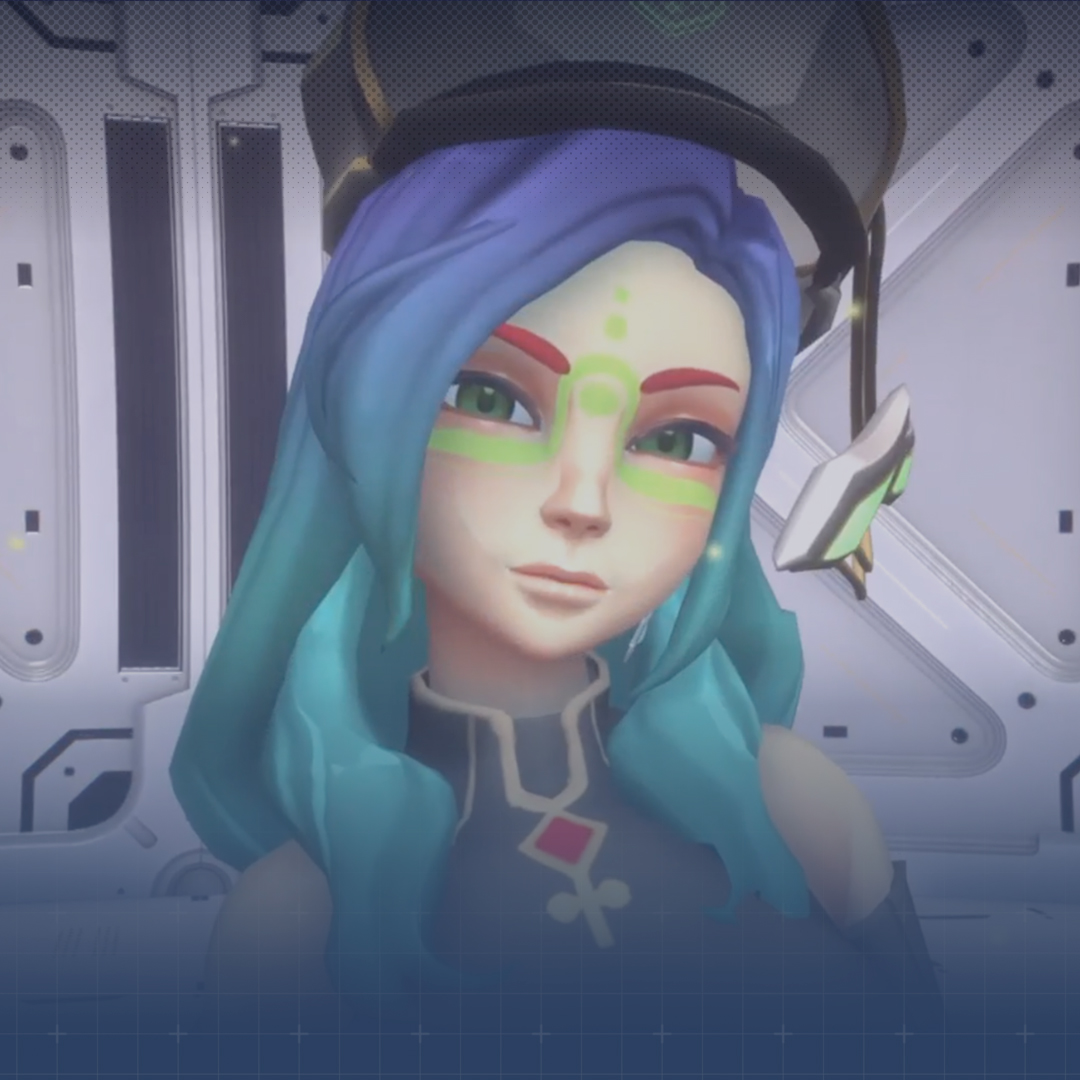
Introducing you Agate’s avatar, our R&D’s latest project consists of customizable avatar that transforms our vision into various features, art styles, and advance technology. The purpose is to create Agate’s own standard to innovate tools and techniques, research and validation, growth of improvement and learnings of new trend in the industry. The Design First layer of the process comes from the design dapartment. Their call is to ensure all features run smoothly by developing an enjoyable UI/UX along with suitable narrative concept and its limitation. ConceptingBehind a successful output, there is always a wide and powerful research. The purpose was to collect data and insight about what works better and how can we improve. After its done, we narrowed all the thoughts into specific concept of ideation and started to determine all the characters. Setting PrioritiesWhen the idea was settled, the call was to make suitable directions for the team to explore. Our team was required to prioritize the time, resources, and the beneficial impact to our user. To achieve this line, we forced every person involved to actively interact and effectively communicate with each other. As the first layer of the creation, there were several challenges await: in a very limited time, design department needed to create an avatar highlighting all features including the control of avatar appearance. To solve this limitation, our design department along with the tech and art department came up with solution to create preset for various parts, from facial to cloths. With those presets, player will have options of combination to costumize their avatar. The Art One of the important and significant roles in the making of Agate’s avatar comes from the Art Department: 3D Artist, Technical Artist, Concept Artist. Their call was to determine the character including style, concept, and model. We explored options, established visual style and created various approach. The goal was to create a direction and pipeline to fulfill the limitation and requirement. Our team used photoshop, blender, unity, and mixamo to bring the character into life. The chosen sci-fi theme was quite complicated and we were challenged to create it in a short period of time. Another challenge came from the tech art where they needed to make standard to accommodate the desired features and quality at its best. Previous Next The Tech Tech department was required to combine all the assets with an interface system to deliver a playable product where players can modify their avatar’s looks. The team needed to set up the customize feature based on utility and user preference. To run this idea perfectly, our team used Unity 2020.0.38ft as the main tool, specifically: Unity Timeline, Unity UGUI, Unity Animation System, and Skinned Mesh Renderer. Inside the idea of customizable avatar, our team created the design and system consist of various adjustable custom based on user preference. For example, player will have the control to pick their own color when using a slider. To create a comfortable experience for player to customize their avatar, our team has developed a very convenient and easy adjust system. Architecture Design Translating the mind concept from designer into system with all the mechanism was pretty much a challenge. To overcome the challenge, they separated those concepts into simpler based tasks as a system to change avatar’s looks. Product Manager & Producer The decision to validate whether the approach is correct or not was a call from our Product Manager. It took a tremendous amount of research and data to ensure the final result have met the expectation. At the same time, a Producer took part in ensuring all needs and requirements are effectively communicated and went perfectly according to its schedule. Previous Next Those are the men behind the creation of Agate’s avatar. Interested in taking a part? Head down to the vacancy list below and join our team! VACANCY LIST Position Department Contract Type Business Development Marketing Sales & Operation Contract Type : Regular Crew Details Finance Finance Contract Type : Internship Details Outsourcing Staff Studio Contract Type : Internship Details Art Director Art Contract Type : Regular Crew Details Load More
Indonesia Gaming Ecosystem: A Growing Landscape with a Promising Future
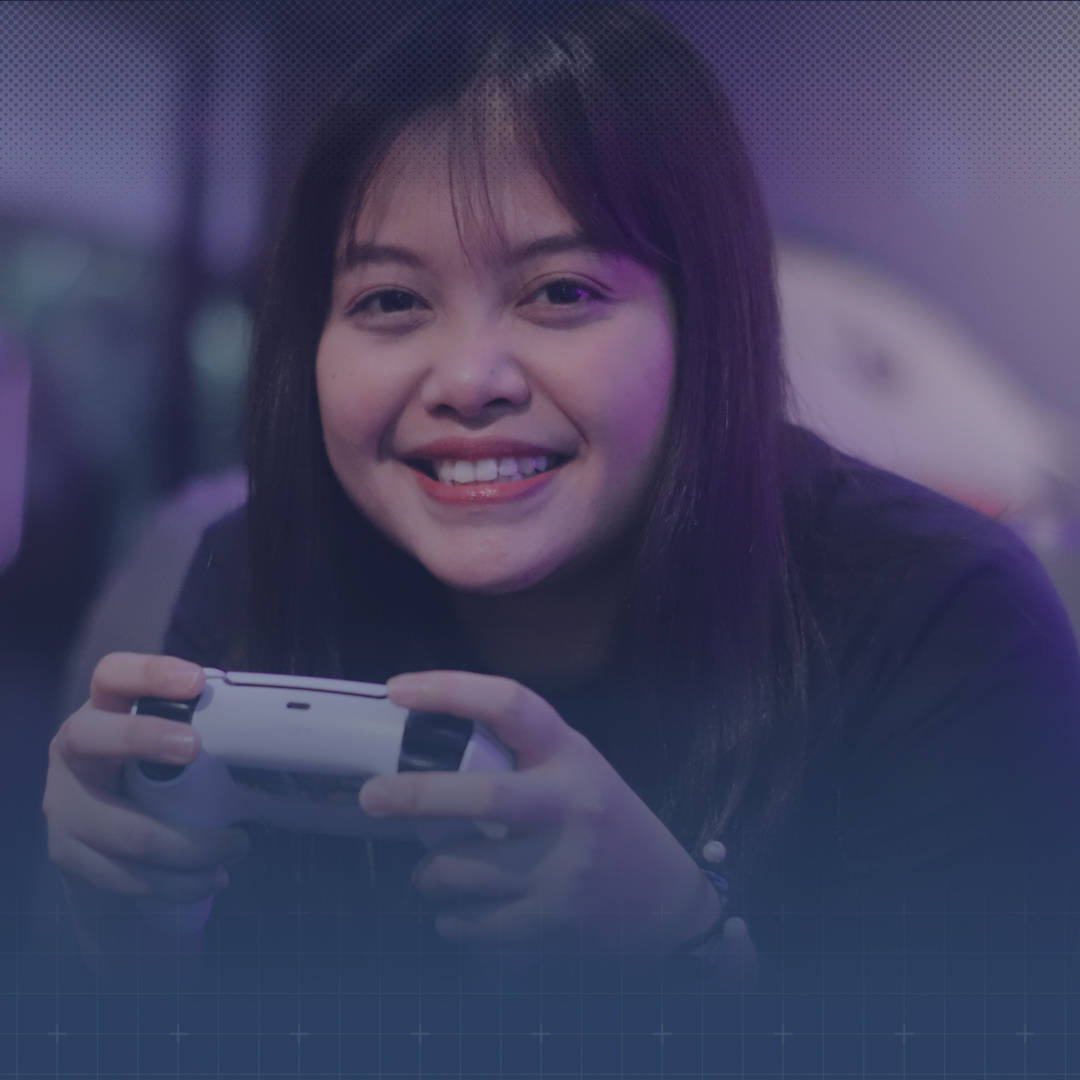
Indonesia’s game development ecosystem is rapidly growing and becoming more established, with a growing talent pool and local game development studios. However, the industry still faces challenges, such as a lack of funding and limited access to the global market. Despite these challenges, the future of Indonesia’s game development ecosystem looks promising, with potential for further growth and recognition in the international gaming market. What’s the current state of the global and Indonesian game ecosystem? Global The global gaming ecosystem is constantly evolving due to market growth and changing trends, especially during the pandemic when people spend more time at home. The industry is closely linked to technology and therefore changes every year. This can be seen in the evolution of platforms that we come to love, from the early years of console games shifted to arcades, and today we witness a plethora of mobile games on our phones. Additionally, new platforms such as the PlayStation 5, Xbox Series S Console, and cloud streaming have emerged, providing more immersive and realistic gaming experiences and appealing to a broader audience. Indonesia In the case of Indonesia, it all depends on how locally-made games are marketed rather than how games evolve along with the current state of technology. In the beginning, many Indonesian developers created mobile games because they were more accessible, and making PC games or buying consoles in Indonesia was still relatively expensive. Even so, the mobile market turned out to be top-heavy, making it difficult for new mobile games to catch up. As a result, Indonesian developers eventually switched to PC and console games, which were then exported because PC and console players were more open to trying new games. In fact, there are many capable Indonesian talents, but they deliberately do not target the local market, so many people don’t realize that Indonesian talents can make good games. What are the changes in the Indonesian game ecosystem these past few years? Other than the development change from mobile games to PC and console games, in 2022, there are many investments for the game industry, especially in Web3. This allows developers who used to make small-scale games with their own money to have the opportunity to make large-scale games with their own uniqueness. What challenges must be faced to grow the game development ecosystem in Indonesia? In Indonesia, many things must be self-taught as there are still not many professional paths to learn about game development. Also, while there are a few large gaming companies in Indonesia, such as Agate, many people who are hired still have limited experience in game development. Because many things must be self-taught, we don’t have benchmarks, and it also takes a lot of time, energy, and resources because we make a lot of trial and error. Many Indonesian game developers sell their services abroad, and after finding success, they often choose to relocate overseas. This makes it challenging to retain top talent who want to stay in Indonesia. How does Agate approach these challenges? Agate was founded with the dream of becoming a home for Indonesian game developers. To make this happen, Agate has several initiatives, such as creating Agate Academy, working with associations and incubations to create programs, gathering new talents, and providing education and mentoring. These things are done not only to resolve Agate’s talent problems but also to help solve talent problems in Indonesia. To actively reach for Senior talents, Agate takes the initiative to connect with people abroad, especially the skillful Indonesians who have worked in the game industry abroad. In addition, we also learned from experts such as ByteDance and worked with Activition Blizzard to become our mentors. For example, artists at Agate will discuss and receive input from the Art Director of Zelda Breath of the Wild every few weeks. Although we can’t hire them full-time, the insights or decisions they provide are often those we’ve not considered before. What are Agate’s reasons for advancing the game development ecosystem? It’s impossible to realize Agate’s dream of becoming a developer house if the game ecosystem isn’t moving forward. So, growing the ecosystem is not just an ideal; it’s a necessity. We need it to become big and fulfill Agate’s dream of becoming a home for developers. From the development of the ecosystem, Agate can get the best talent, build trust, and gain networks. What does Agate hope for the game development ecosystem in Indonesia? Game development is highly digitized, so there are no logistical, geographical, or physical limitations. This is an opportunity for Indonesia to compete with other countries that are far more advanced than us. We hope Indonesia can be on par with other countries that are more advanced in the game industry. Why does Agate attend various external events? As a part of the ecosystem, Agate contributes to the game ecosystem in Indonesia by improving as a company. One of the ways is by attending various external events to level up. Attending these events provides a range of benefits, including: Speaking opportunities Goals: Provide information about materials related to tech development, games, and other topics related to the game development industry and Agate’s business. Maintain the existence of Agate representatives’ public presence. Showcasing our products Goals: Help increase product and brand awareness. As a place to provide free trial products to the target market and get feedback from players. Networking and business matching Goals: Find and build relationships related to business development, such as investors, publishers, clients, and other game developers. Looking for and building relationships related to brand awareness, such as with TV, media, and Key Opinion Leaders (KOL). Sharing insights from attendees about the development of the tech world and its market demands to help get a more realistic picture in the marketplace. Research & Development Goals: Exploring trends and market in their respective roles. in their respective roles. Why does Agate do Merger & Aquisition? What were Agate’s reasons for M&A with Ekuator and Freemergeny? Agate recognizes that progress cannot be made
Leaders & Specialist In The Art Department
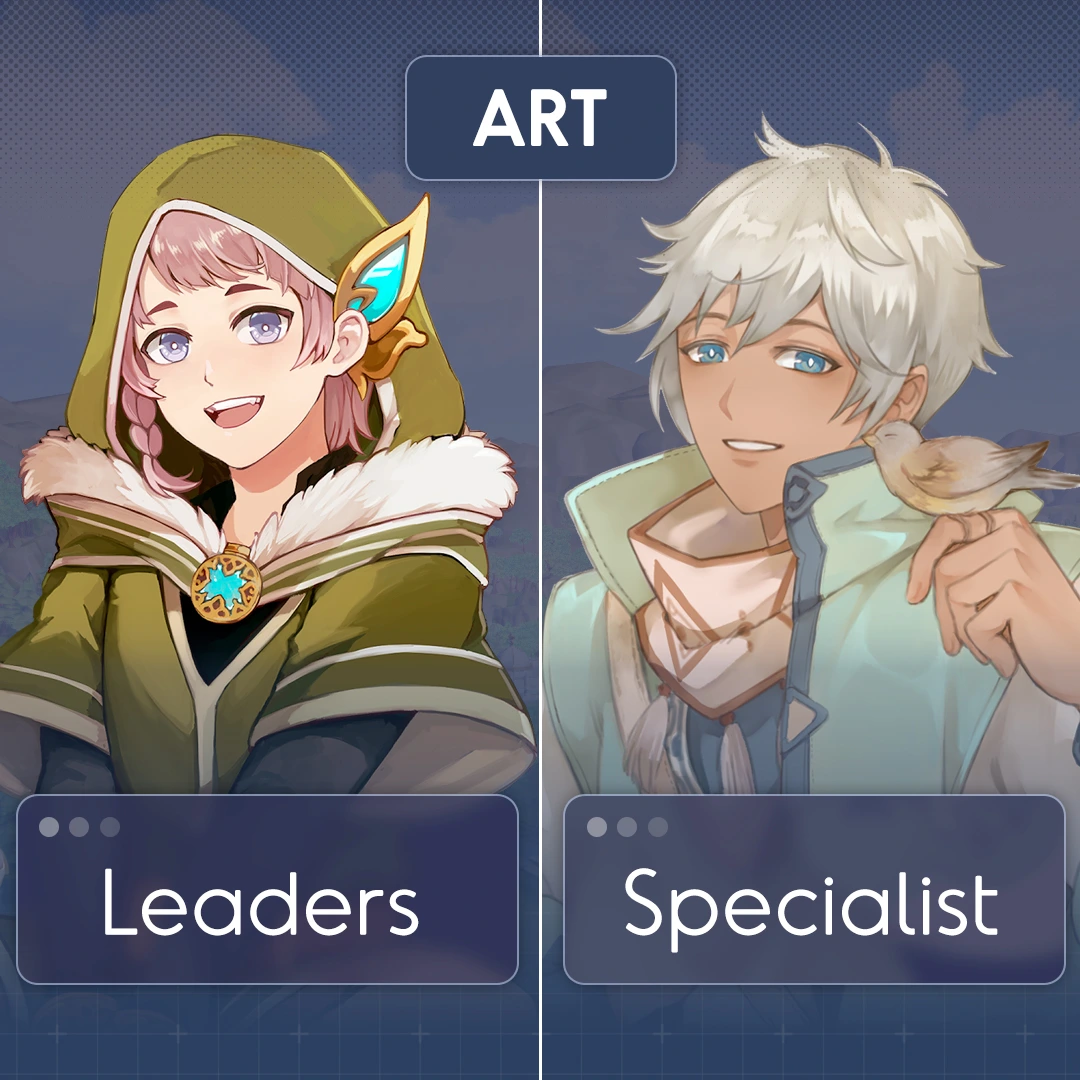
Creativity has always been at the heart of an art department. But sometimes creativity can be too elusive and intangible to pin down. This is why the leader and the specialist are important roles in the art department. The call is to ensure all creative deliverables are well executed and align with the client’s expectations. But what is actually the obligation of both roles? The role of an Art Leader Things You Need to MasterTo become one, an Art Leader must understand the basic art concepts from color theory and visual composition to 3D texture. You must translate abstract thinking into stunning optical outputs and an understanding of digital software like Adobe Photoshop, Blender, etc. Not only the creative manner itself, you will also need to have excellent management, communication, and problem-solving skills. This means you must be able to manage all deliverables, time, and workload, formulating creative solutions and giving necessary suggestions according to your artistic experiences. Challenges You Will Be FacingThere are lots of projects you’ll handle. The challenge is to manage all with 100% of your attention. Sometimes, you will need more human resources added to your team, which can be challenging. The Perks You Will HaveArt Leaders will have broader insights into the art pipeline and product direction, have the agency to turn the artistic vision into reality and have a decisive say in strategic decisions within the team. You will have the freedom to grow your team in such a creative way and participate in the global game industry. The role of an Art Specialist Things You Need to MasterAs an Art Specialist, you are required to have some specific skills and knowledge and master some particular tools to optimize the output. Other than that, soft skills will also be fundamentally required, especially problem-solving, time management, communication, and creativity itself. Challenges You Will Be FacingFull commitment to put your heart into the project you handle and the willingness to know more and explore such trends, styles, and art approaches might be very challenging, especially when you must learn something different from your taste and preference. The Perks You Will HaveYou can focus on learning the desired field and develop the required skills. You will also be the expert to solve specific problems in your team. If you think you are the right person to fill one of those positions, we are delighted to have you on our crew! Head to the vacancy list below and see which job matches you perfectly! VACANCY ON ART DEPARTMENT Position Department Division Contract Type 3D Artist Art Gamification Contract Type : Temporary Details 2D Artist Art Gamification Contract Type : Temporary Details Technical Artist Art Art Service Contract Type : Temporary Details Load More

